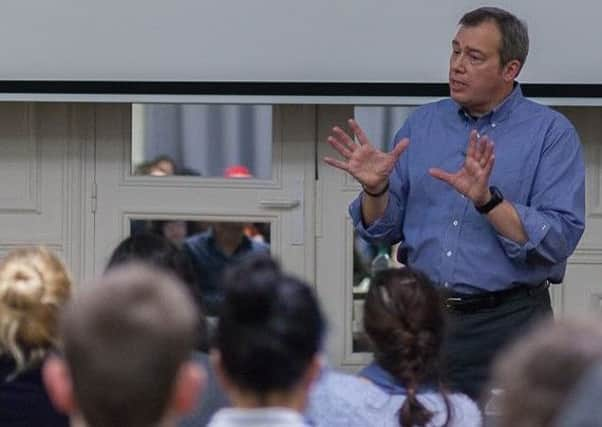Troubles killers will never admit they were wrong - genocide expert


Prof Jim Waller was speaking to the News Letter after giving a lecture in Belfast City Hall on Tuesday.
A social psychologist by training, he is Cohen Professor of Holocaust & Genocide Studies, at Keene State College, New Hampshire and Director of Academic Programs at the Auschwitz Institute for Peace and Reconciliation.
Advertisement
Hide AdAdvertisement
Hide AdThe academic spent last spring as a visiting professor at Queen’s University Belfast.
His work looked at how Northern Ireland is recovering from the loss of almost 3,700 lives from 1966 to 2001; according to the reference work Lost Lives, republicans were responsible for 2148 deaths, loyalists 1071 and security forces 365.
The area of his expertise is perpetrator behaviour, or as he puts it: “how ordinary people come to commit acts of extraordinary evil”.
He said: “In that field, I’ve interviewed nearly 225 perpetrators of genocide, war crimes, and crimes against humanity (including state security actors, police, military, paramilitary aligned with the state, and civilians) with an eye toward understanding the process of transformation by which they commit those crimes.
Advertisement
Hide AdAdvertisement
Hide Ad“These interviews have been done in Argentina, Guatemala, Chile, Rwanda, Burundi, Tanzania, and throughout the former Yugoslavia.”
After his lecture on Tuesday, a victim said that what they need to move forward is for perpetrators to admit their bloodshed was unjustifiable.
“My response to that, based on my work with perpetrators around the globe, is that violent actors go to great lengths to justify why what they do is a legitimate behaviour. Typically, they do it by perceiving the ‘other’ as a threat to their own existence, identity, reality, etc.
“In my experience, most perpetrators hold on to those justifications for long after...at best, they may admit the means themselves were unjustifiable while holding on to the belief that the ends are still perfectly justifiable.
Advertisement
Hide AdAdvertisement
Hide Ad“I think these are mental gymnastics that perpetrators engage in so as to avoid facing the full psychological and emotional consequences of their actions.
“They have to believe that what they are doing is justified in order to reconcile their harmful actions with a positive image of themselves. This is just one of the many things that make post-atrocity reconciliation so difficult.”
His work leads him to question what is achievable in the aftermath of mass bloodshed and whether conflict may simply take on “a different political and social expression”.
With violence having been so normalized in the Troubles, he asks if “stability” might be a sufficient expectation now.
Advertisement
Hide AdAdvertisement
Hide Ad“Or must there be reconciliation and complete integration? People’s response to my presentation [on Tuesday]suggests that they are struggling with the same questions in their lived experience in Northern Ireland.”